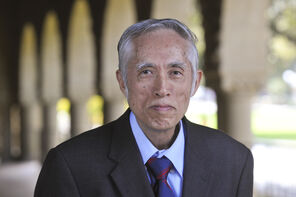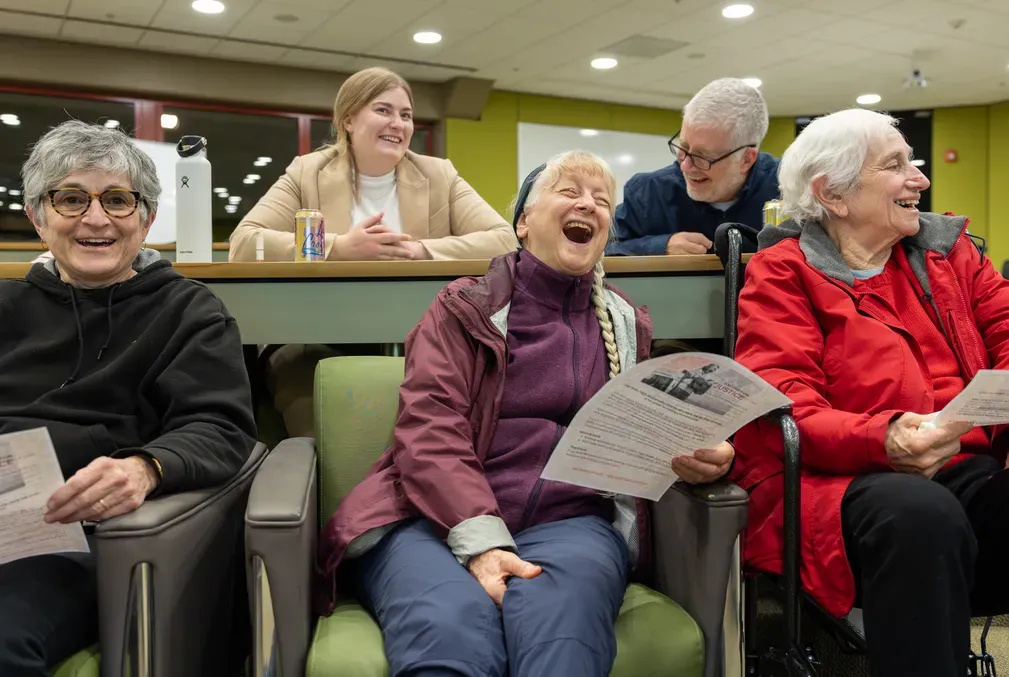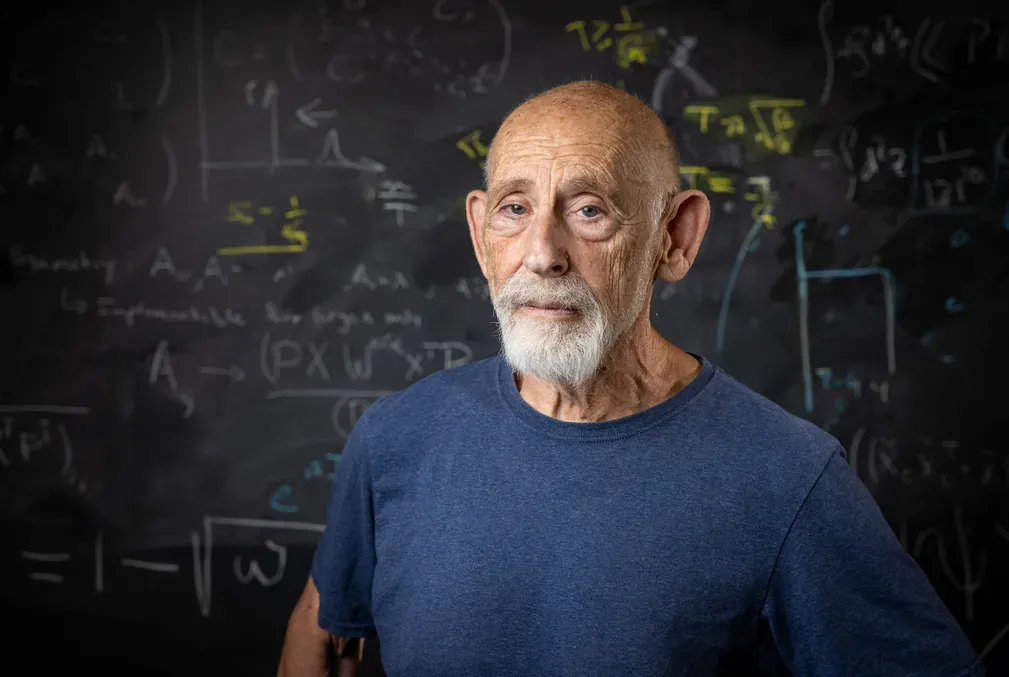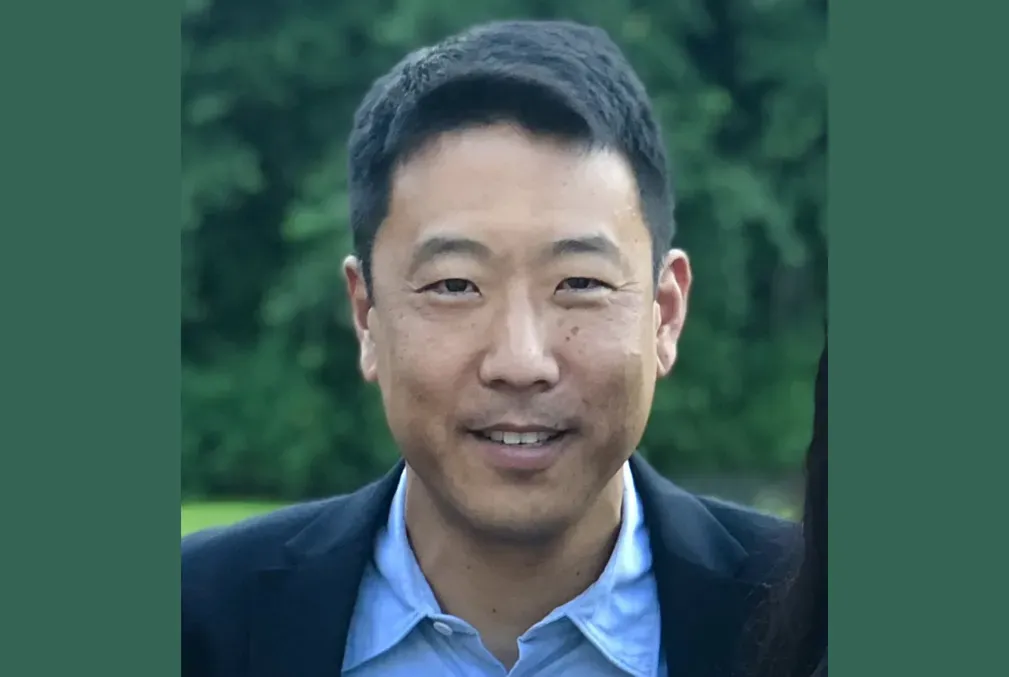Tze Leung Lai, professor of statistics with an interdisciplinary approach, dies at 77
A prolific scholar and dedicated mentor, Lai’s research spanned theoretical statistics and mathematics and their applications in biomedical science.
Tze Leung Lai, the Ray Lyman Wilbur Professor and professor of statistics in the Stanford School of Humanities and Sciences and a former chair of his department, died from a stroke in his sleep May 21. He was 77.
Renowned for his drive and his collaboration in a diverse range of fields, Lai joined Stanford in 1987 and served as chair of the Department of Statistics from 2001 to 2004. He was an accomplished scholar whose research spanned both theoretical statistics and mathematics, as well as their applications in biomedical science, clinical trial design and analysis, cancer research, and other areas. In addition, he served as a mentor, having advised at least 79 students on their doctoral dissertations and seven postdoctoral trainees.
Among Lai’s many contributions to the field of sequential statistical analysis is his groundbreaking work on the “multi-armed bandit problem” (named after slot machines, or “one-armed bandits”), where an individual chooses between actions (or “arms”) to maximize a cumulative reward. Lai’s research on survival analysis; stochastic approximation and recursive estimation; and Markov decision processes, which are models that describe sequences of possible events, also contributed greatly to this field.
“Professor Lai was a dear colleague who was a big presence in Sequoia Hall,” said Jonathan Taylor, the current chair of the Department of Statistics. “Professor Lai served as chair just as I started my career at Stanford, helping me establish myself here. Lai's pioneering work on areas such as sequential analysis and ‘multi-armed bandits’ continues to inspire work today. He will be greatly missed.”
From Hong Kong to Stanford
Lai was born June 28, 1945, in Hong Kong. He graduated from the University of Hong Kong in 1967 with a degree in mathematics and the intention of becoming a civil servant. However, an outbreak of civil unrest—specifically, riots protesting British colonial rule—persuaded him otherwise, and he instead went to Columbia University to study statistics.
The spirit of the times caught up with him there as well, as antiwar protests in the fall of 1968 shut down the campus; in the spring of 1970, the campus again shut down due to antiwar protests, which led Lai to assume his oral exam would be canceled. It wasn’t, but Lai passed, despite reporting in a 2016 interview that he felt “unprepared.” It was a pivotal moment Lai said he “always remembered when put under stress,” and the experience influenced his philosophy and approach toward constraints in experimental design, statistical analysis, and dynamic optimization.
He earned his doctorate in 1971 and joined the faculty at Columbia as a professor of mathematical statistics. Lai met and married Letitia Chow during this time and remained a faculty member at Columbia for more than a decade. In 1986, he was appointed the Higgins Professor of mathematical statistics.
The next year, Lai joined Stanford, where he would teach for the next 36 years. In addition to statistics, he collaborated with researchers in and held courtesy appointments in the School of Medicine, the School of Engineering, and the Woods Institute for the Environment. He also founded the Financial and Risk Modeling Institute in 2012 and served as its director afterward. He was co-director of Stanford Medicine's Biostatistics Core, Stanford Cancer Institute from 2005 to 2016 and its Center for Innovative Study Design from 2009 through 2023.
Over his career, he wrote or edited 11 books—several in Chinese—and published more than 300 articles. He was a fellow of the Institute of Mathematical Statistics; the American Statistical Association; and the Academic Sinica in Taiwan. In 1983, Lai earned the Committee of Presidents of Statistical Societies Presidents’ Award, a prize given to statisticians below age 41.
Prolific and tireless
Lai’s colleagues and family remarked on his dedication and regimented approach to work. His penchant for all-hours work is mentioned by several friends and colleagues in an online memorial book, Remembering Professor Tze Leung Lai. “Tze Leung was a legendary figure and a giant in the academic world,” wrote Man-Keung Siu, a professor at the University of Hong Kong who was a friend of Lai’s for more than six decades.
“Professor Tze Lai has always been my ultimate inspiration,” said Lu Tian, a professor of biomedical data science in the School of Medicine, who worked closely with Lai in recent years. “His unwavering commitment to research and, more importantly, his genuine care and support for students and young researchers will be deeply missed. His contributions to the field, both through his groundbreaking research and his mentorship of the next generation of researchers, will undoubtedly be acknowledged and revered in the times ahead.”
“Although Tze Leung Lai was known for the long hours he dedicated to his research, teaching, and more recently to the administrative responsibilities he assumed, he was generous and encouraging to others, whether they shared his extraordinary dedication to work or not,” said David O. Siegmund, the John D. and Sigrid Banks Professor and professor of statistics and Lai’s graduate adviser. “And he was proud of the role he had played in the lives of his two sons—walking them to school several hours after his wife had begun her daily commute to San Francisco and attending church with the entire family every Sunday.”
In addition to his wife, Lai is also survived by his sister, Anna Choi, and her husband, King Fai Choi; older son, Peter Lai, and his wife, Crystal Chen; younger son, David Lai, and his wife, Iris Law; niece Charina Chou and her husband, Jonathan Chou; niece Priscilla Choi; grandchildren, Valerie and Kit Lai; and great-niece, Zoe Chou.
A memorial service was held June 24 in Mountain View, California. In lieu of flowers, donations can be made to the American Stroke Association via the Tze Leung Lai remembrance site.




